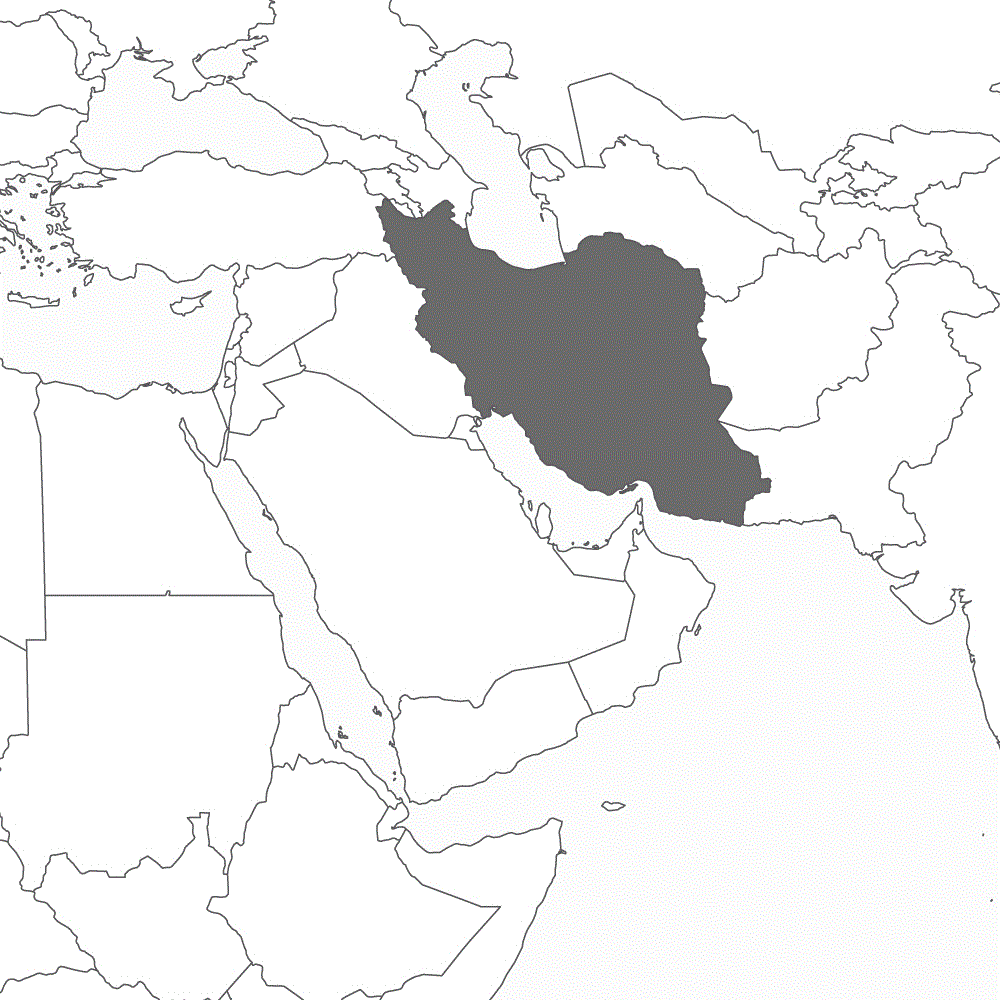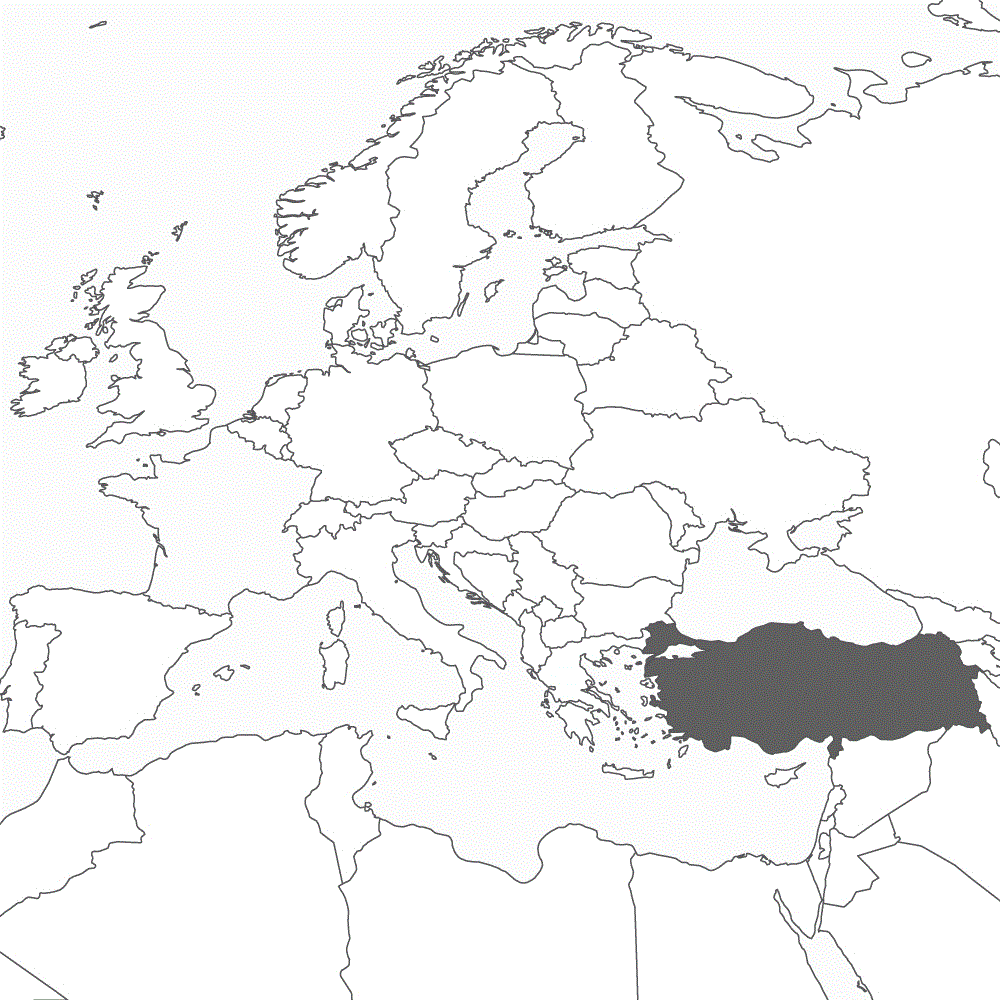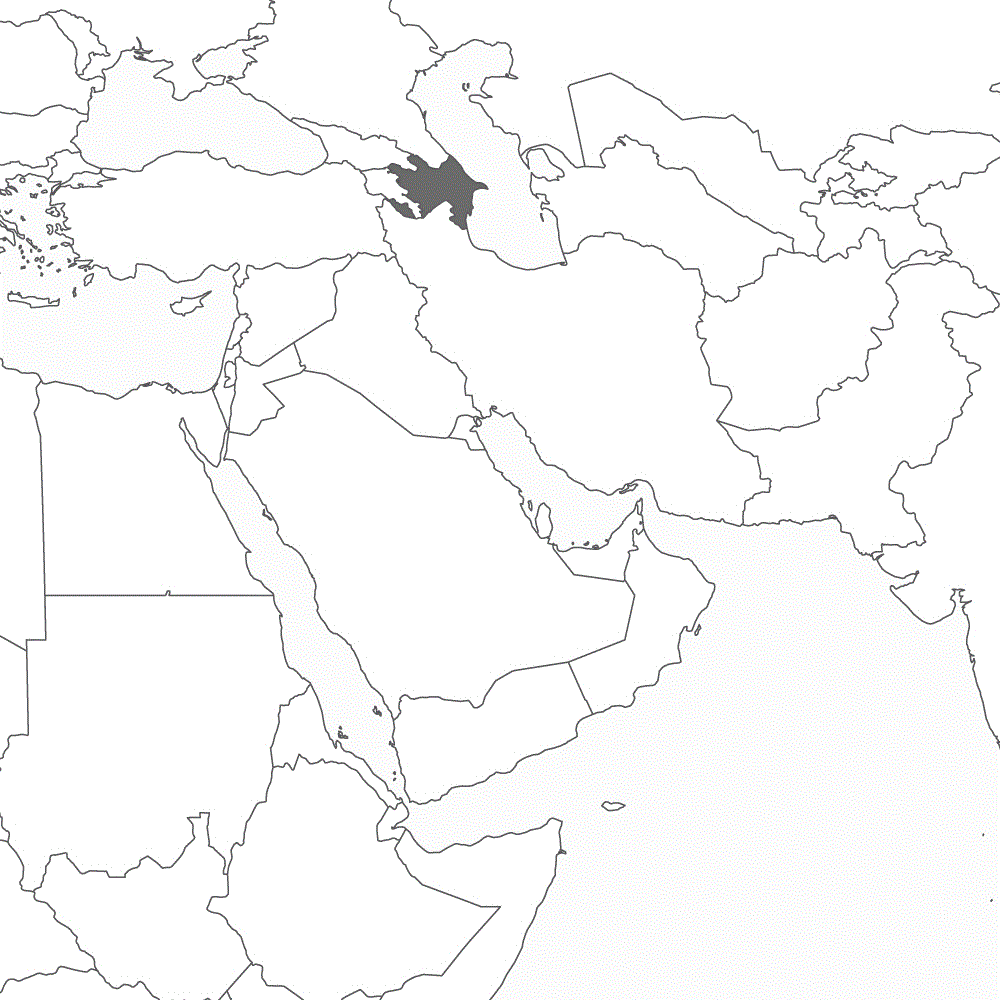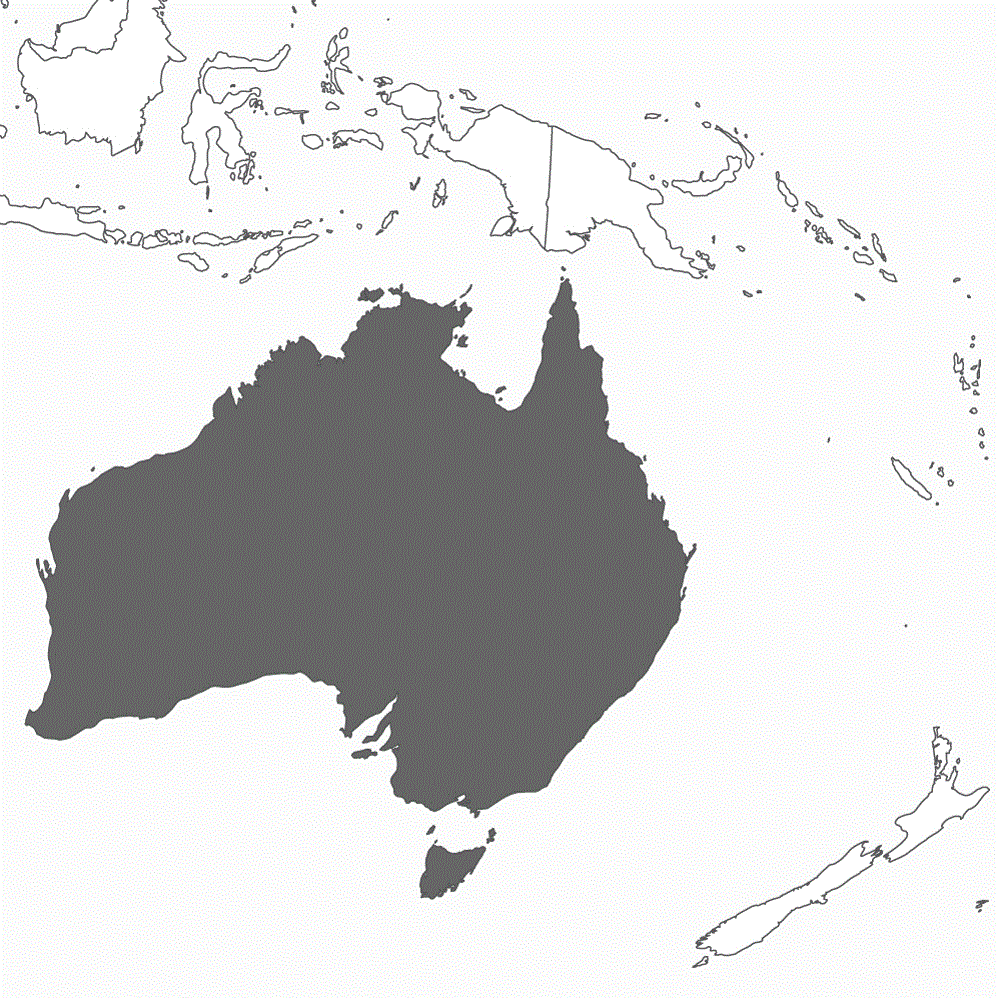The Next Round in the Nuclear Dispute with Iran
Berlin urges future US administration to change course in relation to Iran, while Teheran favors a "look east" policy.
BERLIN/WASHINGTON/TEHERAN (Own report) - The German government is pushing for a quick return to the nuclear deal with Iran once designated US President Joe Biden takes office. Already months ago, Biden had declared his willingness to do so. German companies are hoping for lucrative business opportunities, which would also help them to weather the Corona crisis. However, obstacles persist in Washington, such as the presumed continued Republican majority in the US Senate and a new wave of sanctions initiated by outgoing President Donald Trump. Thus, supplementary, coercive measures, independent of the nuclear deal, would, in fact, be imposed on Iran's entire oil sector. Biden is raising the demand - supported also by Berlin - that Iran refrain from seeking regional influence and limit its missile program massively. Teheran is unwilling to comply and - given its experience in dealings with the West - prefers a "look east" policy. Read more
Naval Powers in the Mediterranean
Ankara protests German forces' boarding of Turkish vessel. Italian admiral: The West has lost its pre-eminence in the Mediterranean.
BERLIN/ANKARA (Own report) - The Western powers, including Germany and the EU, are in danger of losing their pre-eminence in the Mediterranean, Admiral Luigi Binelli Mantelli, former Chief of the Defense Staff of Italy declared. According to Binelli Mantelii, Russia has become "the pre-eminent naval power in the Mediterranean," and Turkey, in particular, is rapidly gaining influence. Together, Moscow and Ankara are in the process of superseding the "traditional" Western peacekeeping powers. The statement is being published at a time when Turkey has snubbed the navy of a leading EU power, for the second time. During the night from Sunday to Monday, a German boarding team seeking to inspect a Turkish cargo vessel en route to Libya, suspecting a possible breach of the UN arms embargo, had to abandon its inspection due to Ankara's intervention. Already in June, Turkey had averted a similar French naval operation. Unaccustomed to defiance, the EU finds itself powerless to halt the rise of its Turkish rival. Read more
The EU's Strategic Autonomy
EU defense ministers will discuss steps towards a greater "strategic autonomy" - via PESCO and the "Strategic Compass."
BERLIN/BRUSSELS (Own report) - In their video conference set for tomorrow, the EU defense ministers will focus on new steps towards a "strategic autonomy." One topic will be PESCO's "strategic review." PESCO is a project launched in early 2018, to enhance the EU's autonomy in the armament industry and military sectors. At the beginning of the month, following several years of dispute over the question of third countries' PESCO participation, an agreement came into effect. This will now be allowed, however only within tight limitations that are disadvantageous to the US arms industry. Apart from this, experts attest to PESCO's serious deficiencies. The EU foreign ministers' meeting tomorrow will also focus on the German plan to establish a "Strategic Compass" for the Union, aimed at finding a common denominator for the member states' conflicting interests. German Defense Minister Annegret Kramp-Karrenbauer is casting doubt on whether the EU can achieve "strategic autonomy" within the foreseeable future. Read more
The Fairy Tale of Equality in Europe
German economic researchers predict a growing gap between the eurozone's rich North and its impoverishing South.
BERLIN (Own report) - The socio-economic gap between the rich North and the impoverishing South of the Eurozone will continue to grow, according to a recent study by the business-oriented Cologne Institute for Economic Research (IW). The gap within the eurozone had already significantly grown between 2009 and 2018, with the economy of the North having grown by 37.2 percent, while by only 14.6 percent in the South. This development will continue over the next 25 years, the IW predicts. The IW notes a certain catch-up effect in Eastern Europe, which, however, will not lead to their catching up to the West, due to the desolate starting point following the deindustrialization of the 1990s. The region's basically unaltered function as an extended workbench, particularly for the German export industry, does not provide for a perspective of independent growth. Observers expect that the corona crisis will additionally widen the gap between the North and the South. German trade surplus and Berlin's austerity dictates are the real reasons for this inequality. Read more
Powerless in the South Caucasus
Berlin's attempt to gain influence in the Nagorno-Karabakh conflict failed. Moscow monitors the ceasefire.
BERLIN/MOSCOW (Own report) - Foreign policy experts consider the ceasefire in the Nagorno-Karabakh conflict to be a success for Russia and a strategic defeat for the West. The mediation of a cease-fire was a "spectacular diplomatic move" by Russian President Vladimir Putin, according to the Carnegie Moscow Center. "The West" has "once again yielded the floor to Putin," criticizes the government-financed Deutsche Welle. In fact, Moscow has once again successfully ended an armed conflict in close cooperation with Ankara - like previously, for example, in Syria. The OSCE's "Minsk Group" (USA, France and Russia), which had dealt with the Nagorno-Karabakh conflict, has failed, just as Berlin and the EU's attempts failed to end that war. Russian troops will now monitor the ceasefire in Nagorno-Karabakh. Russian armed forces are deployed in all three South Caucasian countries - for the first time since the early 1990s. Read more
The Bundeswehr's Next Area of Operation
The German Government plans to increase military operations in the "Indo-Pacific" in the strategic competition with China.
BERLIN/CANBERRA (Own report) - The German government plans to send a frigate for patrol in the Indian Ocean and to deploy German naval officers on Australian warships, announced German Defense Minister Annegret Kramp-Karrenbauer on the occasion of her talks with her Australian counterpart. A training expedition of the frigate "Hamburg" to the Indian Ocean was originally planned for this year but had to be cancelled due to the pandemic. According to Kramp-Karrenbauer, the Indo-Pacific has become an arena of "global challenges" and "Germany needs to mark its position in the region." At the same time, Kramp-Karrenbauer is quoted saying that Germany wants to maintain business with China, which is currently helping the German industry through the Corona crisis. According to an article in the foreign policy magazine "Internationale Politik," Germany should rearm Taiwan's armed forces and conduct joint military exercises with them. This would amount to a profound breach in relations with Beijing. Read more
Go Down with the USA
Germany's foreign Policy and the US Presidential Elections. Commentary by Hans-Rüdiger Minow
Little more can be said about the course of the US presidential elections and Germany's foreign policy reaction. All that has been said about the incumbent US president, his nightly intention to stop counting the votes, his self-proclamation as winner, and the upcoming battle in US courts because of alleged electoral fraud - all that is innocuous, because it does not correspond to the actual developments. It reduces the extent of abuse inflicted on the ideals of bourgeois democracy in the purported homeland of its reign, as if all this is just a rude interlude, a perilous performance, which can still avert the end of the drama in the next act, with a better kind of protagonist, with another script and a German prompter. However, it is too late for that. Read more
A Difficult Ally (II)
Berlin is calling on Washington to take joint action against Beijing by taking German interests into account.
BERLIN/WASHINGTON (Own report) - Berlin is calling on the incoming administration in Washington to take carefully concerted action against Beijing by taking Germany's particular interests into account. "Americans and Europeans" have many common demands on the People's Republic of China, particularly those concerning trade and investments in China, German Foreign Minister Heiko Maas declared, and side by side, they must raise them now. A "Transatlantic Working Group" could coordinate a transatlantic policy toward China, which should, for example, include the US vice president, relevant EU representatives and foreign, defense and other ministers of EU member states, according to a proposal drawn up under the co-authorship of German diplomat Wolfgang Ischinger. High significance is attached to the competition for global technological leadership. At the same time, Berlin is rejecting some of the US aggressions, including the plans to decouple China from the West: "We do not support every stance and every advance by the government in Washington," the German Defense Minister declared. Read more
GERMAN-FOREIGN-POLICY.com
Information on German Foreign Policy: News + Interviews + Analyses + Background




